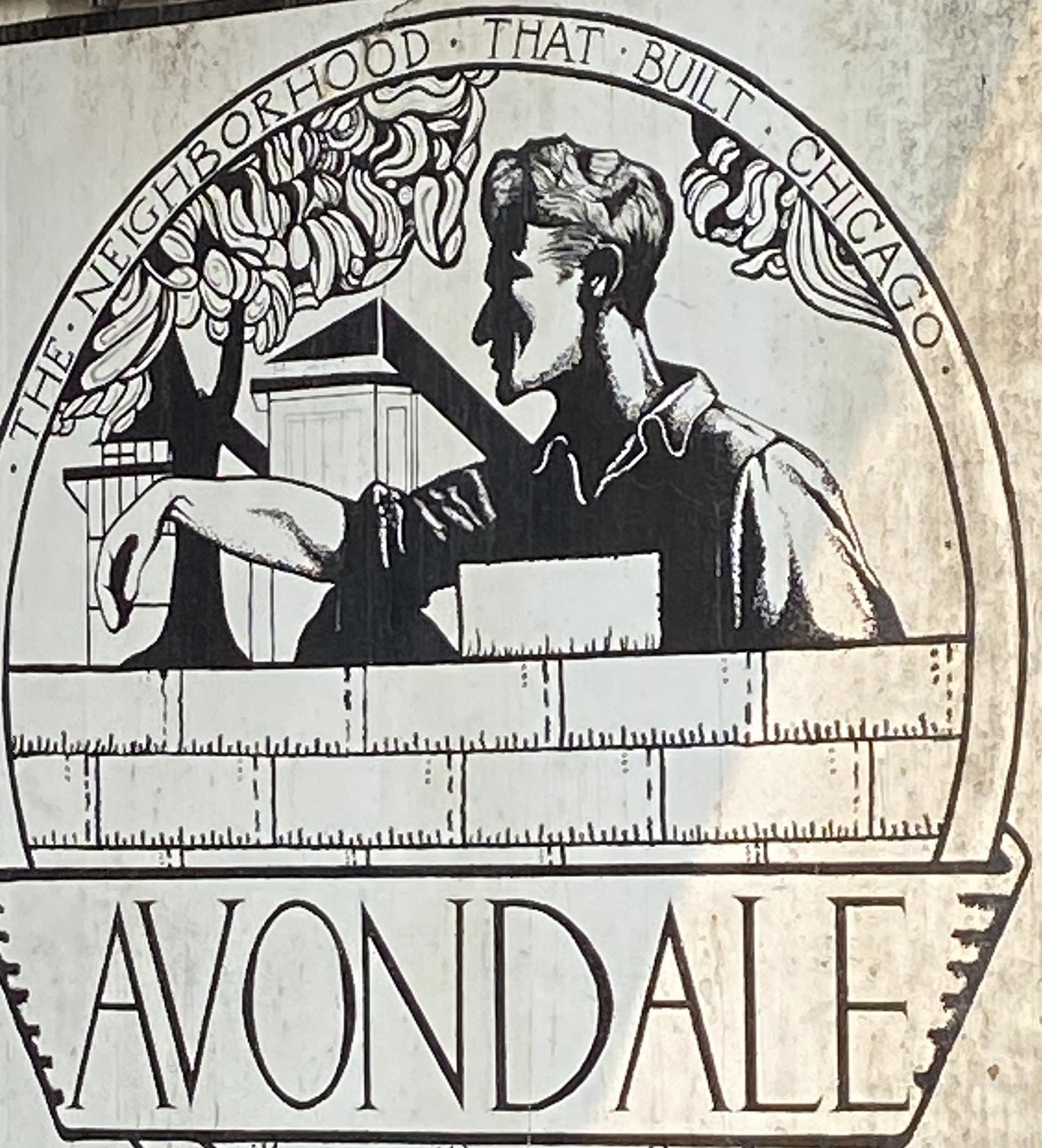Selling Historic Homes in Chicago
The Ben Lalez Team of Chicago, specializes in assisting clients with buying and selling historic homes in the Chicago area. As real estate professionals, advising clients on the local historic preservation ordinances and how to maintain the home’s character are some of the top priorities practiced by Ben Lalez and his team. This article will cover various aspects of selling a historic home in Chicago, the role of the local historical society, potential tax incentives for buying a historic home, and some of the additional costs that may be unique to historic real estate transactions.
Highlight your Home’s History, Not its Fables
The buyer of a historic property enjoys hearing the story. What was it like for you to be here? How can you determine whether a house is considered to be a historic residence? Is this the most exciting story? Did the past owners (or sellers) of the historical home add any rich history to improve the home’s value? As soon as you share the home’s history you will need to be as truthful as possible when you market the home, since telling false claims often discourages buyers. The information presented should come from research found in newspaper archives, or a local historical society.

How do you find the history of Historic Properties in Chicago?
You can find documentation on Chicago historic property by contacting your local library, the local historical society, census data, and asking your local real estate agent specializing in the sale of historic homes, Ben Lalez. You can also search the links below for more information on historic properties in Illinois or learn about 11 of the most traditional building types in Chicago.
Work with Historic Home Contractors Who Understand Preservation
The contractor you choose to update or repair your home should have a background in historic homes and know how to do so without compromising on historic values. Older homes may have high ceilings and lack modern updates, which could make renovations a bit more costly. If there isn’t a person in my network that meets your needs, get a referral from your realtor to the most reliable historic property contractors in the town.
Understand and Disclose Restrictions for Your Historic Home
Besides easements, local historic protection laws could place restrictions on remodeling or upgrades to the historic home. These local ordinances can require inspection of alterations or prevent demolitions of historic buildings, which could make potential buyers a little less interested in purchasing historic properties for sale. Be sure to follow all applicable regulations before selling the home. For selling a historic home in Chicago, you can check with the City of Chicago Historic Property Preservation.
Seller’s Inspection: Historic Homes Repair Requests
Home Inspections are especially important when it comes to historic homes, since there may be safety issues that have to be addressed, so hire a home inspector that has experience with historic properties. Potential buyers of a historic home and real estate may appreciate the hardwood floors and the original features, so it’s advisable to try and negotiate a closing cost credit for necessary repairs to avoid any potential damage or liability during renovations.
Historic Properties: Insurance Costs
Potential buyers of historic properties should reach out to their homeowner’s insurance agent to discuss the costs associated with insuring the property (which would be a requirement of the lender if getting a mortgage). Some insurance companies may require plumbing or electrical upgrades depending on what the home currently contains. New Construction homes may lower insurance rates, some modern home buyers still appreciate the charm of historic homes and are willing to pay a premium for the additional insurance costs.

Financial Resources for Historic Preservation
Explore various financial resources available for historic preservation projects, including grants, tax credits, and incentives at local, state, and national levels. Purchasing a historic home in Chicago can be a great way to maintain the historic district, so potential buyers should review the following incentives with their real estate agents before finalizing the real estate transaction. As part of the marketing plan to help sell historic real estate in Chicago, these financial incentives could provide interested buyers with extra funds to restore the original flooring, update the HVAC system to reduce average utility costs, or make the necessary repairs to ensure their newly purchased historic home has been properly restored.
7 Historic Preservation Incentives for Residential Properties In Illinois
- Property Tax Assessment Freeze for Historic Residences: This program freezes property taxes over a 12-year period after rehabilitating a historic property. Eligibility requires a minimum investment of 25% of the property’s market value, and the building must be owner-occupied and certified as a historic structure.
- 20% Federal Historic Tax Credit: Available for rehabilitating historic buildings for income-producing use. The credit equals 20% of qualified construction costs and expenses, with the building listed on the National Register of Historic Places.
- 25% State Historic Tax Credit:A competitive state income tax credit that complements the federal credit. It provides a 25% credit on qualified construction costs and expenses, with projects eligible for up to $3 million in credits.
- Preservation Easement Donation: Donating a preservation easement can lead to a one-time charitable federal income tax deduction based on the appraised value of the easement. Eligible properties include certified historic structures.
- Permit Fee Waiver Program: The City of Chicago waives all building permit fees for individual Chicago landmark buildings or those contributing to a Chicago landmark district.
- Greystone Initiative: Offers funding to promote the rehabilitation of one- to two-unit greystone residences in Chicago, with forgivable loans for quality-of-life improvements.
- Eugene D. Funk Grant Program: Provides financial assistance for the preservation of exterior architectural features of historic properties in Bloomington, IL.
6 Historic Preservation Incentives for Non-Residential Properties
- Illinois Historic Preservation Tax Credit Program: Offers a state income tax credit equal to 25% of qualified expenditures for certified historic structures in designated redevelopment zones.
- 20% Federal Historic Tax Credit: Similar to the residential credit, this applies to non-residential historic building rehabilitation.
- 25% State Historic Tax Credit: Complements the federal credit, offering a 25% credit for qualified expenses.
- Barn or Agricultural Building Rehabilitation Incentives: Tax deductions for rehabilitating agricultural structures.
- Conservation Easement: Provides income tax reductions for leaving farms and open land in private ownership.
- Cook County Class-L Property Tax Incentive: Offers a 10-year property tax reduction for rehabilitating commercial or industrial landmark buildings in Cook County.
13 Historic Preservation Grants for Nonprofits, Municipalities & Government Agencies
- Save America’s Treasures Grants: Provides funding for the preservation of nationally significant historic properties and collections.
- National Fund for Sacred Places: Grants for capital projects at historic sacred places that provide human services, strengthen communities, and revitalize neighborhoods.
- Home Depot Foundation: Grants up to $5,000 for organizations improving their community’s physical health through volunteer-driven projects.
- National Trust for Historic Preservation Fund: Grants for local-level preservation projects, including planning, education, and public outreach.
- African-American Cultural Heritage Action Fund: Supports preservation projects related to African American cultural heritage.
- Illinois Clean Energy Community Foundation: Offers grants to upgrade energy efficiency, prioritizing historic buildings.
- Illinois Department of Commerce and Community Affairs’ Tourism Attraction Grant Program: Funds heritage tourism-related preservation projects.
- Illinois State Historic Preservation Office Certified Local Government Matching Grants: Supports historic resource inventory surveys, planning, and National Register listing.
- Illinois Transportation Enhancement Program: Provides funding for transportation infrastructure projects that enhance cultural, historic, and environmental aspects.
- Illinois Department of Commerce and Community Affairs’ Public Museums Grants Program: Funds operating and capital projects for museums owned by governmental units.
- Retirement Research Foundation’s Accessible Faith Grant Program: Helps houses of worship finance accessibility improvements.
- Route 66 Corridor Preservation Program: Grants for the preservation of significant Route 66 landmarks and cultural landscapes.
- Amtrak Great American Stations: Lists federal and non-federal grant programs for rail station development.
In conclusion, selling historic homes in Chicago is a unique and rewarding endeavor, but it comes with its own set of challenges and considerations. Whether you’re a homeowner looking to sell a piece of history or a buyer looking for historic homes to preserve the past, it’s essential to approach the process with knowledge and care. Selling or buying a historic home in Chicago is a unique experience for the right buyer that requires diligence, knowledge, and a commitment to preserving the city’s rich architectural heritage. By following these guidelines and leveraging available resources, both sellers and buyers can navigate the process successfully and contribute to the continued legacy of historic homes in the Windy City.

